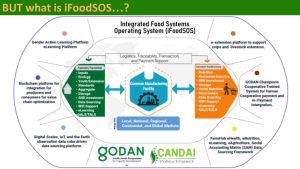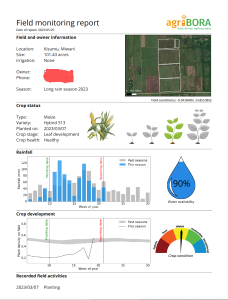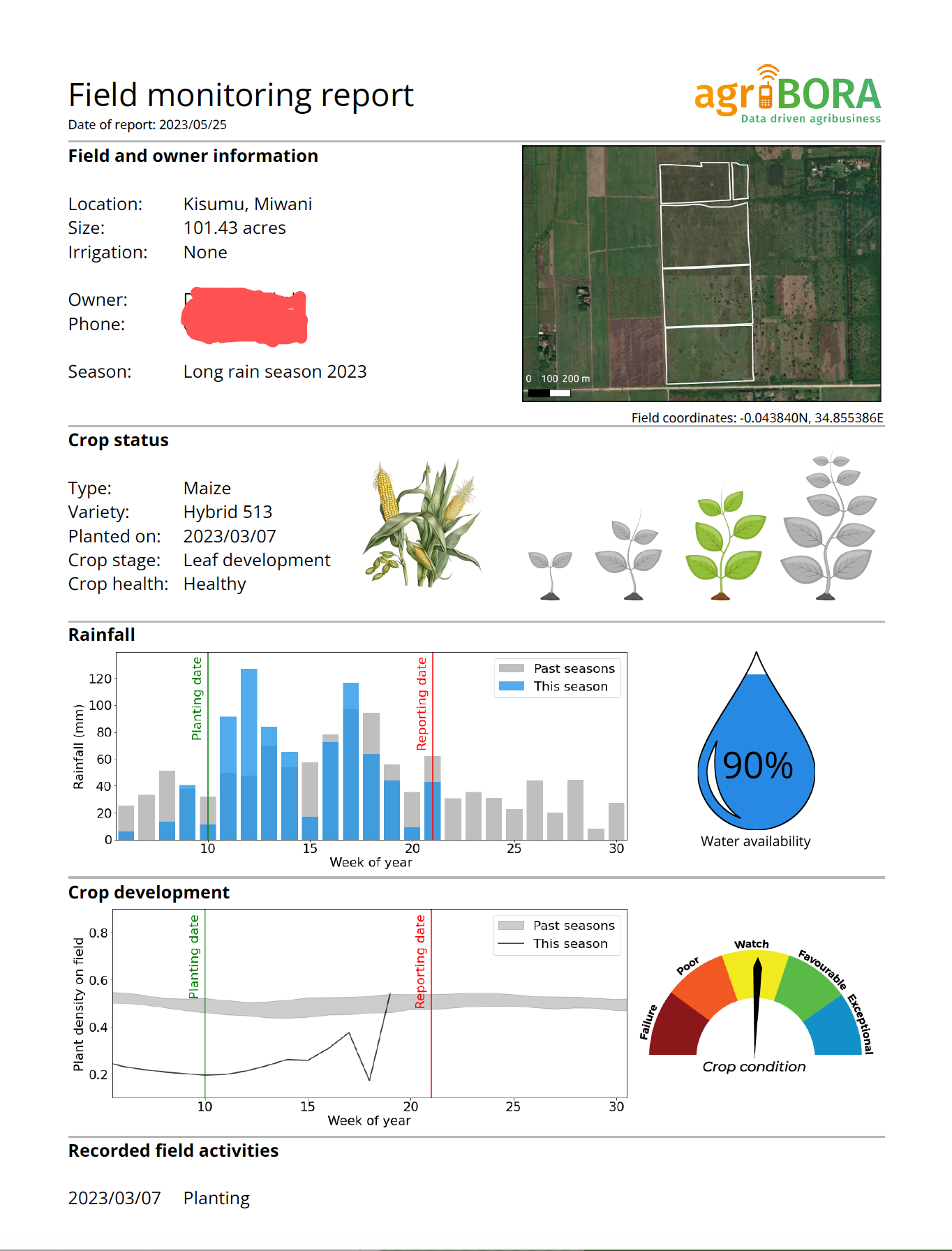By Felix Kimani Kariuki, ESRAG East Africa Chair

How small farmers can use data to develop more resilient and successful food systems
Climate change is a massive magnifier of the risks faced by small farmers. AgriBora is an Agri-Fin-Tech company that leverages satellite data to help farmers in Kenya understand and reduce those risks. AgriBora is a word coined from “Agri” for Agriculture and “bora,” the Kiswahili word for “better.” Hence AgriBora means “Better Agriculture.” My role is to scale the use of this technology and to work with farmers, collecting their advice to develop the service so it meets their needs with precision. This is crucial for our food systems to recover and thrive. Check out this short newscast.

An AgriBORA field report
Every 5 days a satellite orbits a specific location on Earth. As it passes it collects various datasets such as the climate of the place, the vegetation cover, the water index, etc. AgriBora uses Sentinel satellite to monitor crop health at each stage of growth of a geotagged farm. Additionally, through its field monitoring service, AgriMON SaaS, it provides an estimate of the expected and potential harvest as per the current climatic, and field conditions. These data inform financial institutions and insurance companies on credit risks with greater precision. I’m working through the AgriBora satellite intelligence extension advisory to help small farmers improve both production and income.
AgriBORA has now signed a Memorandum of Understanding with the Kenya National Federation of Farmers, and we have onboarded 1.6 million farmers! This broadcast on the Kenya Television Network provides an overview of how we are working to empower them with data.
Farmers’ greatest need – other than inputs – is getting their crops to market at the right time. There are situations where farmers throw away produce or have produce rot at the farm for lack of market access. I am currently working with Nairobi County Government on the creation and integration of the Market Linkage Geoportal. This shows which physical markets are nearby and which need the produce a farmer has ready to sell.
For small farmers to have a fair chance of success, they need to be informed and equipped to implement climate-smart farming, and have the right infrastructure. This includes irrigation, cold storage, adequate roads, and timely market information.
There are several ways Rotary Clubs can team up with local farmers and strengthen their market power and influence on policy. These include:
- Coaching farmers on farming practices that enhance production
- Encouraging collective saving
- Helping to fund equipment such solar-powered wells, irrigation and cold storage for perishables
- Working together on policy advocacy that advances farmers’ goals
I see this as a partnership. Most small-scale farmers are disadvantaged by operating on their own. Rotary Clubs can help farmers create organizations or associations that give them economies of scale. These associations can pool savings into a kitty to fund infrastructure needs. Rotarians could help create social bonds to finance major local projects like road repair. They could advocate for tax policy favoring the shared savings of farmers for infrastructure needs.
This is the essence of Rotary: that we can come together and solve problems: we, united. That is what Rotary should always scale.
If you’d like to learn more how we’re working on this in East Africa, please email me.
Engineer Felix Kimani Kariuki is ESRAG Africa Chapter Chair and a member of the Lavington Eco Rotary Club in Nairobi. He is the coordinator of the Government Data Think Tank Initiative (GODAN) Secretariat, business development consultant with AgriBora, and Programmes Director for the Programme for Capacity Development in Africa (P4CDA), working on health, experiential education, agriculture, nutrition, and data sourcing.

